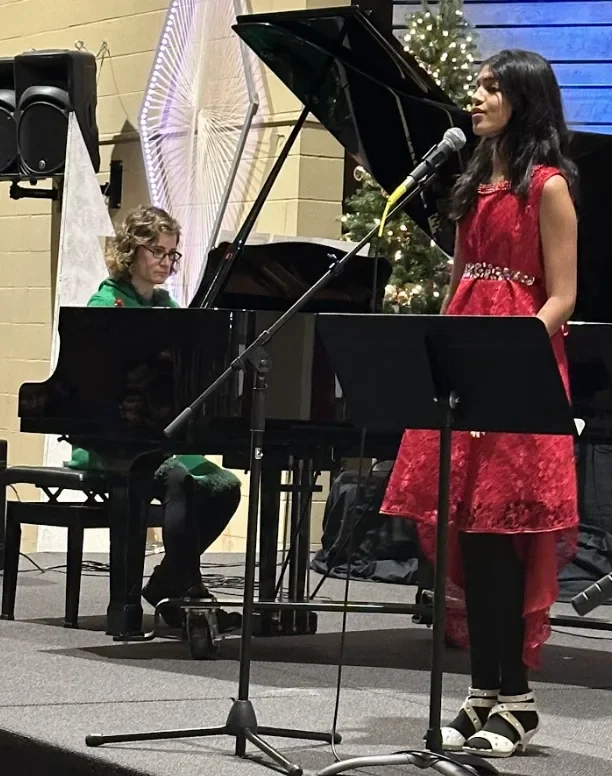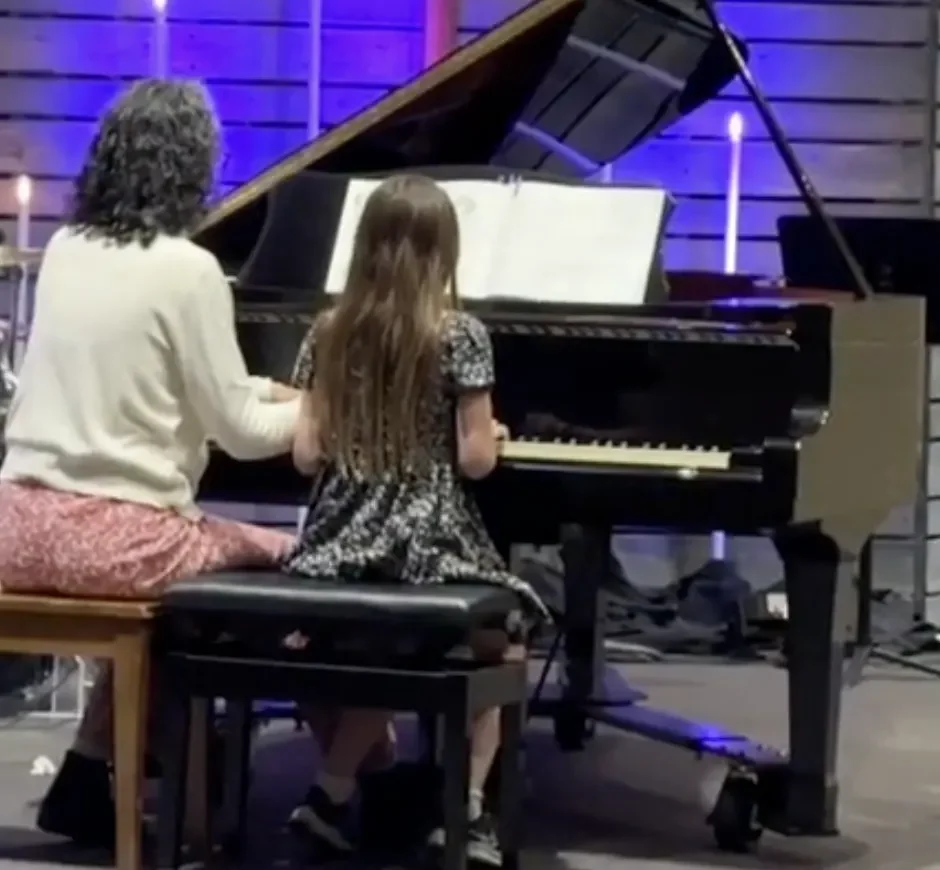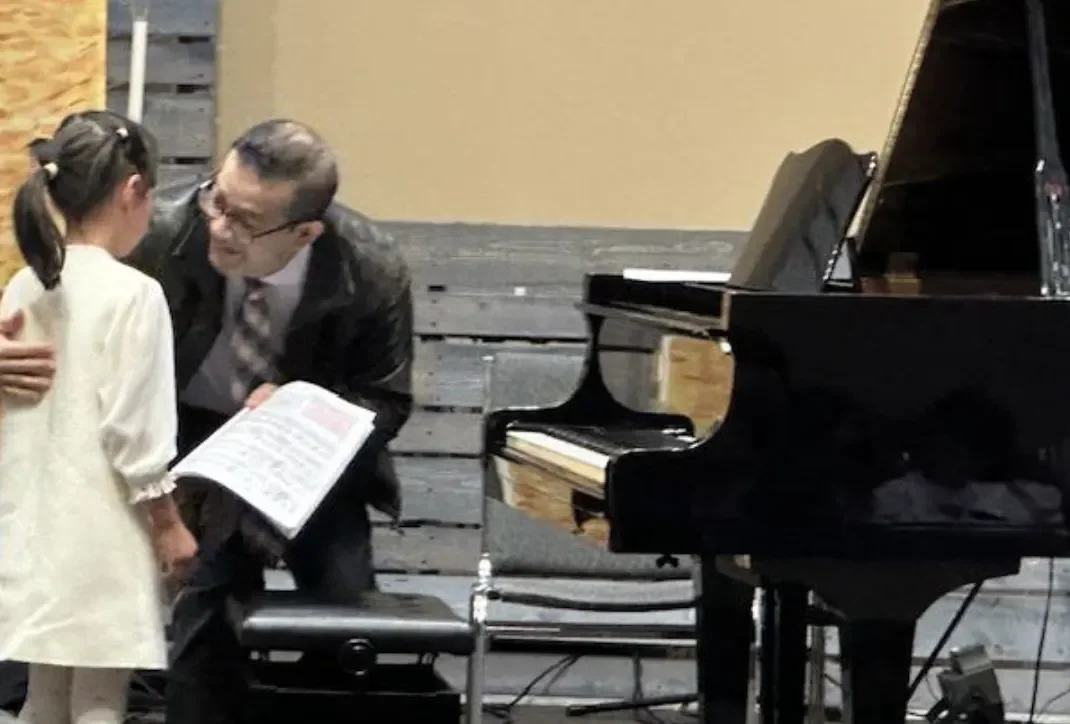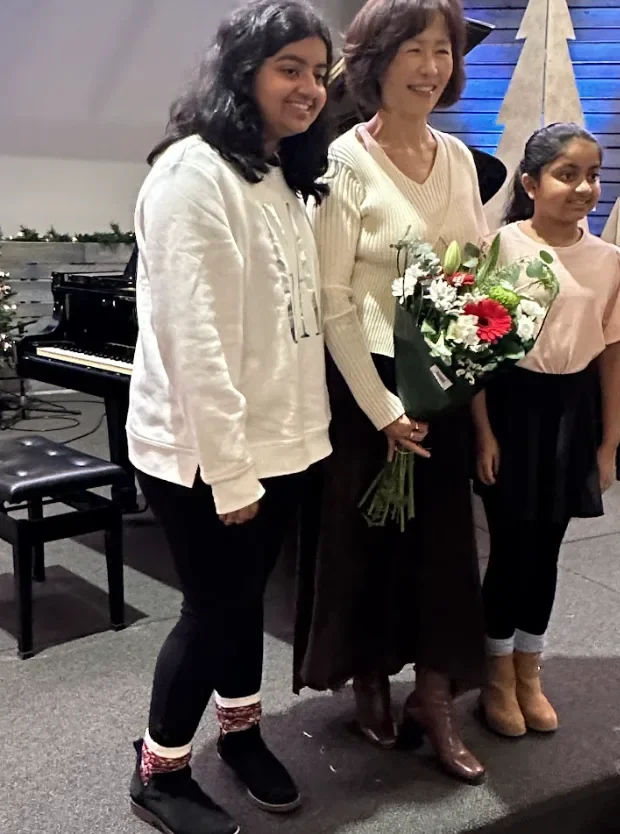How to Choose the Right Music Teacher for Your Child
NUVO Music School’s practical guide for parents in Surrey, Langley, White Rock & Delta BC
Why does the right teacher matter?
Learning an instrument is a long-term relationship — not a one-off purchase. A great teacher builds musical skills and confidence. They turn practice from a chore into a habit, help your child survive (and thrive) through plateaus, and inspire a lifelong love of music. For parents, the right fit affects progress, enjoyment, and whether lessons continue for years.
The five core characteristics of an outstanding music teacher
Below each characteristic, you’ll find what it looks like in practice and how parents can verify it.
1. Child-centred pedagogy (teaching skill)
Child-centred pedagogy simply means that the lesson is built around the child, not just the teacher’s routine or curriculum. Every child learns differently — some pick things up by listening, others by moving their hands, and some need repetition and encouragement. A child-centred teacher adapts their approach so the student actually connects with the lesson, enjoys it, and makes progress.
What it looks like in practice
For a 5-year-old beginner, lessons might include short rhythm games, singing, clapping, or drawing notes to keep them engaged.
For an older beginner (8–10), the teacher may introduce popular songs the child already likes while still teaching technique.
For a teen student, lessons might include setting practice goals together and choosing pieces that match their taste.
The teacher sets small, realistic goals (like “play this 4-bar melody” instead of “master the whole page”).
Lessons are paced so the child feels successful each week rather than overwhelmed.
How you, as a parent, can check for this
Ask to see a sample lesson plan → Does it include activities that fit your child’s age?
Trial lesson → Watch: Does the teacher change tactics if your child loses focus?
Look for creativity → Do they use games, apps, or fun exercises for younger kids instead of only drilling notes?
Ask questions → “How do you adjust lessons if my child is shy, energetic, or learns slower/faster than average?”
👉 In short: A music teacher with child-centred pedagogy sees your child as a unique learner and adapts the lesson so music feels enjoyable and achievable — not like a chore.
2. Musical expertise (technical and stylistic)
Musical expertise is more than just being able to play an instrument well. A great teacher not only has solid technical skills (correct finger placement, posture, tone production) but also understands musicality — the expressive side of music like rhythm, phrasing, and dynamics. This balance ensures that your child doesn’t just “press the right keys” but actually learns to make music sound alive.
What it looks like in practice
A piano teacher who can demonstrate proper hand position and also explain how to make a melody “sing.”
A violin teacher who teaches scales for technique but also shows how bow pressure changes tone.
A guitar teacher who introduces chords and strumming patterns, then connects them to songs your child enjoys.
A voice teacher who corrects breathing and pitch but also teaches expression and stage presence.
Teachers who know different styles — classical, pop, jazz — so the child has options and stays motivated.
How you, as a parent, can check for this
Review their background → Look for conservatory or university training, or equivalent professional experience.
Check versatility → Can they teach more than one style or level (e.g., both beginners and exam students)?
Ask practical questions → “What pieces would you recommend for my child’s age and skill level?” Their answer should be specific and age-appropriate, not generic.
Look for recital/exam readiness → Experienced teachers will be familiar with Royal Conservatory of Music (RCM) or ABRSM exam repertoire, or other structured curricula, even if your child isn’t doing exams right away.
👉 In short: A teacher with real musical expertise equips your child with the technical foundation and the artistic expression needed to grow as a musician — while keeping lessons both challenging and inspiring.
3. Teaching experience & proven student progress
Experience matters because teaching isn’t only about knowing music — it’s about knowing how to guide different types of learners. A teacher who has worked with many students across different ages and skill levels has already learned how to keep lessons engaging, motivate kids during tough practice weeks, and adjust when progress slows down. Just as importantly, experience brings a track record — visible proof that their students improve over time.
What it looks like in practice
Students participate in recitals and show growth from year to year.
Children who started as beginners can now confidently play full pieces or even perform on stage.
Some students choose to take music exams (like RCM or ABRSM) and achieve good results, while others develop enough skill to join school bands, worship teams, or community ensembles.
The teacher can point to past success stories — for example, a shy child who became more confident through performance, or a teen who prepared for auditions.
How you, as a parent, can check for this
Look for testimonials/reviews → Read reviews from other families or ask the school for parent feedback.
Check recital programs → Do students regularly perform? Growth is visible in these events.
Ask about progression → “What kind of progress do your students usually make in 6 months to a year?” A strong teacher will have clear, realistic answers.
References or samples → Without breaching privacy, teachers can share general examples, like recordings of past student recitals, or a description of how students typically advance.
👉 In short: A teacher’s experience and track record give you confidence that your child won’t just take lessons — they’ll actually grow and thrive as a musician.
4. Communication & family partnership
Music lessons don’t exist in isolation — children progress best when teachers, parents, and students work as a team. Strong communication ensures parents know what’s happening in lessons, what needs to be practiced at home, and how to support their child’s progress. A teacher who values family partnership is approachable, responsive to questions, and willing to adapt to the needs of both the student and the household.
What it looks like in practice
The teacher sends weekly practice notes or a practice journal with clear, step-by-step instructions.
Parents receive short progress updates at the end of lessons or through term reports.
For younger children, teachers may share videos or recordings so parents can reinforce correct practice at home.
Teachers are open to quick check-ins about scheduling, practice struggles, or student motivation.
They make parents feel welcome at recitals, lessons (when appropriate), and school events.
How you, as a parent, can check for this
Ask directly → “How do you communicate lesson goals and progress with parents?”
Look for structure → Teachers should have a clear system (practice sheets, digital apps, or email updates).
Check responsiveness → A reliable teacher replies to parent questions within a reasonable time.
Ask about progress reviews → Some schools and teachers offer scheduled parent-teacher conferences or written feedback each term.
👉 In short: A teacher who values communication keeps parents informed, builds trust, and ensures music learning continues smoothly at home — creating a true partnership between family and school.
5. Passion & mentorship (the X-factor)
Passion is the spark that turns a good teacher into a great one. A teacher who genuinely loves music — and loves teaching it — naturally inspires their students. This passion shows up in their energy, creativity, and ability to make lessons fun. Beyond instruction, great teachers also act as mentors, guiding children not only in music but in building confidence, resilience, and self-expression.
What it looks like in practice
The teacher shows genuine excitement when a child masters even a small skill.
Lessons are filled with encouragement, laughter, and creative approaches — not just drills.
They celebrate small wins (first song played smoothly, first recital) as stepping stones.
The teacher takes an interest in the child’s personality and growth, not just technical progress.
Older students may be encouraged to set goals, try new styles, or even compose their own music, supported by the teacher’s enthusiasm.
How you, as a parent, can check for this
Observe a trial lesson → Does the teacher light up when the student succeeds?
Ask what motivates them → Passionate teachers can articulate why they love teaching.
Look for mentorship qualities → Do they talk about helping kids build confidence, not only about exams or notes?
Check student testimonials → Parents and students often describe passionate teachers as “inspiring,” “encouraging,” or “fun.”Expertise & experience — what matters most (practical list)
Formal training: Degree, diploma, or professional certification helps but is not the only marker.
Teaching hours: Years of teaching and number of students taught.
Exam/recital experience: Familiarity with ABRSM/RCM or local exam systems (if parents want exams).
Ensemble & performance experience: Teachers who perform or coach ensembles help students build stage confidence.
Ongoing professional development: Workshops, masterclasses, and continuing training show commitment to staying current.
👉 In short: Passion and mentorship are the “X-factor” qualities that make children want to keep learning. A teacher who inspires joy in music doesn’t just teach songs — they nurture a love for music that can last a lifetime.
How to tell if a Music teacher is truly passionate
They celebrate small wins (not just big milestones).
They adapt when a child is bored or frustrated (switch strategies).
They recommend music the student actually enjoys, not just “the curriculum”.
They offer performance opportunities that build confidence (recitals, open mic, in-school showcases).
They can explain why a technical exercise is meaningful, not just what to do.
Practical checklist: bring this to the trial lesson
(Print or save)
Teacher arrives on time, prepared, and friendly.
Clear plan for the lesson and goals for the term.
Uses positive reinforcement; celebrates small wins.
Gives specific, doable practice tasks for the week.
Shows examples/demos (plays or play recordings) for the child to emulate.
Explains progress metrics (how will we know the child is improving?).
Willing to communicate with parents and schedule progress updates.
Clear pricing, cancellation policy, and make-up lessons.
Offers recital/performance opportunities.
Comfortable with the child’s temperament (calm vs energetic).
Smart questions to ask at the first meeting
How long have you been teaching children this age?
What are your most common student goals, and how do you track them?
How do you make lessons fun during a practice slump?
How much practice do you expect between lessons, and what should that practice look like?
Do you prepare students for exams/recitals? How often?
Can I observe a lesson or have a short trial?
What will you do differently if my child gets bored or frustrated?
Red flags to watch for
Vague answers about lesson structure or goals.
No willingness to communicate with parents.
Overemphasis on theory without play/ear training for young kids.
High turnover of students or very short lesson slots (e.g., regular cancellations).
The music teacher seems uninterested in the child’s preferences.
How NUVO Music School supports families (what we do)
Transparent teacher profiles with qualifications, teaching focus, and sample videos.
Trial lessons so families can assess fit before committing.
Structured curricula for students who want exams and flexible, interest-led paths for those who don’t.
Regular recitals and low-pressure performance chances that build confidence.
Parent communication tools: termly progress notes and practice plans.
Matched teacher placements — we match students to teachers based on age, musical goals, and personality fit
Finding a music teacher is part intuition, part practical checks. For parents in Surrey, Langley, White Rock and Delta: use a trial lesson, bring the checklist above, and trust your child’s response — engagement and sustained curiosity are the best proof of a great match.
Ready to learn piano, guitar, violin and voice lessons? Contact us today at 604-614-3340.




